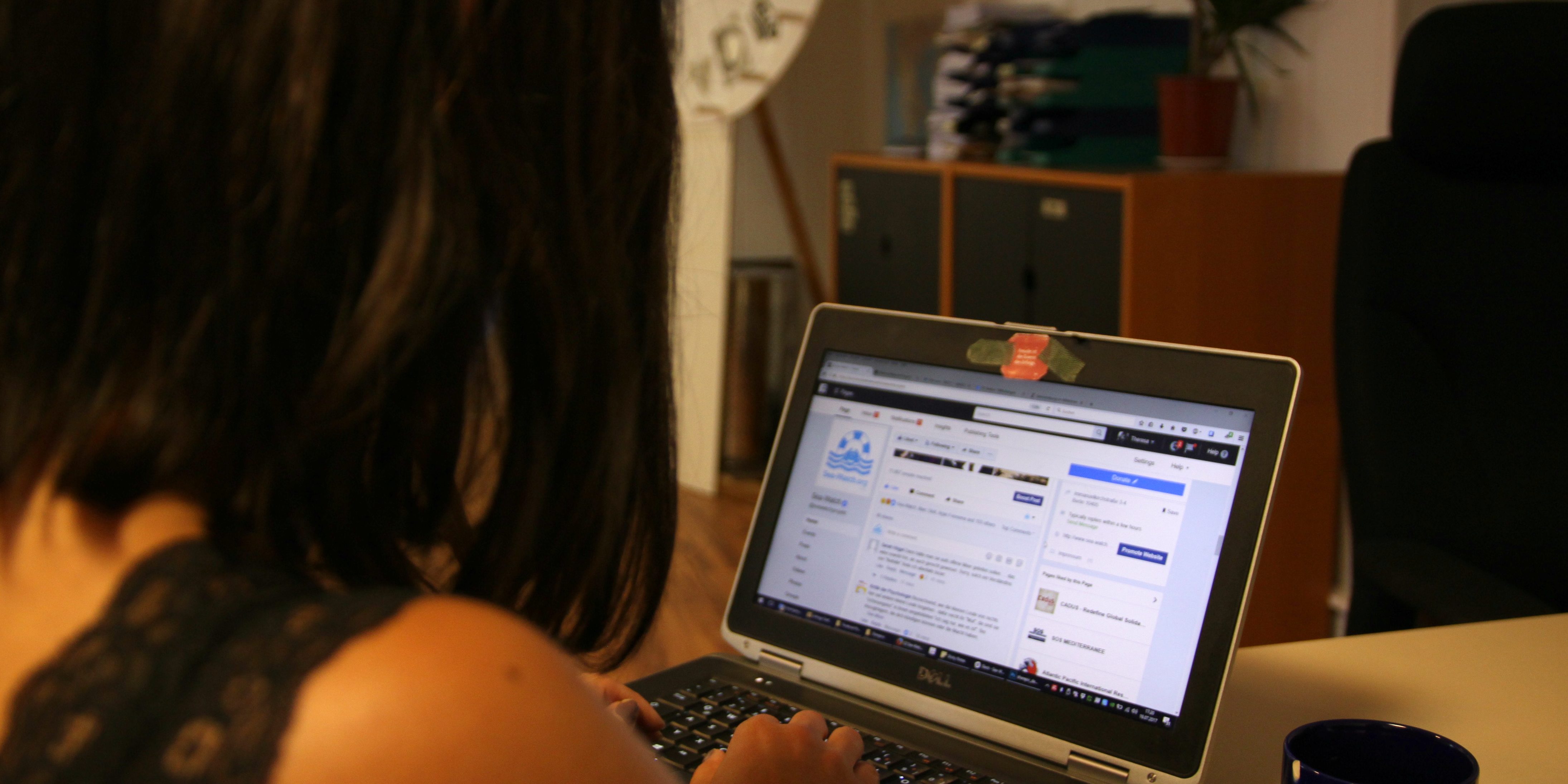Our Facebook Moderator engages daily in the struggle for truth – and against hate
‘Watch out – all that hate does funny things to you.’ This phrase, which Leonie has heard a lot recently, keeps popping into her head. “What does it do to you? A lot of things I’m confronted with just make me angry or outraged. People who describe other people as fishfood. As vermin, scum, trash. Who suggest letting them drown, letting them die. Sinking them, killing them.”
As part of the media team, Leonie is primarily responsible for the moderation of the Sea-Watch Facebook page. She is the first to read the comments from furious, fearful, sometimes racist, often misanthropic users. This hatred, and the negative energy which in her opinion should instead be directed at the deaths in the Mediterranean, reaches the 33-year-old unfiltered. She sees in the work of Sea-Watch a vital answer to one of the biggest questions of our time, and works hard to create publicity where many would prefer to look away. To do this she commutes every week to Berlin in order to support the team. She doesn’t want her real name to appear in this text – she has already had to report several death threats against members of the charity to the police.
Leonie’s background is actually in philosophy: she is used to arguing rationally, listening attentively and allowing herself to be convinced when her interlocutor has better arguments. But of the two thousand comments she deleted during the last media ‘shitstorm’ (as they are colloquially known in the office), not a single one contributed to the debate factually and in a civilised manner.
“I’m sitting in the train. Across from me is a woman in her mid-50s. Next to her a young man. I close the Facebook app, put my phone in my bag and look at the two of them. Do they write these things on Facebook? Do they believe that black people have less of right to a life in safety?” She doesn’t want to think so.
For many people, this type of work would be too depressing, too hopeless even – but not for Leonie. She gives the example of a Mr. R. He wrote to her late at night, a wild torrent of insults, swear words, accusations. She replied to this message the same way as always – factually, politely, and precisely. The next day another message came. He was writing to say he felt embarrassed by his outburst. He hadn’t realised, he said, how quickly he would get carried away in the stream of quickly-scanned news, sensationalist headlines designed to be clickbait. Finally, he told us that we had gained a new fan.
As she sits in front of her laptop in the office until late in the evening, she explains what in her opinion is behind the hate. People like Mr. R are baited with lies and conspiracy theories, constantly fed messages of fear until they have the feeling that they have lost all control over their life and their surroundings.
In the meantime, Leonie has also had to find ways to maintain control over her surroundings in spite of the barrage of online hate. “In the eye of the shitstorm, I found a place from which I can deal with it in a calm and collected way. Delete. Discuss. With facts. With patience. With a team whose work I find deeply persuasive. Who support me, ask how I’m doing. Force me to take breaks. With friends who roll their eyes when I ask them whether I’m going mad. So yes, hate does do things to you. But you get to decide what.”











